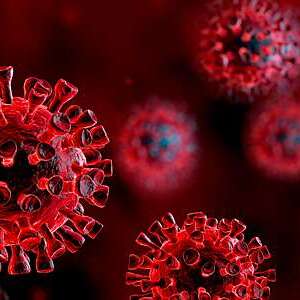Siluanov pointed out the importance of the "locomotive on the siding" in the event of a crisis

A year with COVID-19: how everything was and what has changed forever - in a special project of RBC
Finance Minister Anton Siluanov admitted that the country's authorities could not have expected the closure of entire sectors of the economy due to the crisis caused by the CORONAVIRUS. “We were preparing to lower oil prices , but here one overlapped the other,” the minister told RBC television.
“The conclusion is that you must always keep the gunpowder dry, as they say, and have a locomotive on a siding. That is, do not be tempted by proposals to increase the deficit and increase debt. This applies to both the federal level and the subjects of the Russian Federation,” Siluanov stressed.
The minister pointed out that if the budget had not accumulated a "margin of safety", now it would be difficult to make decisions "in terms of responding with such large financial investments".
At the end of October, Siluanov estimated the cost of supporting citizens, entrepreneurs and healthcare modernization at 4.5% of GDP, or 5 trillion rubles. “These are the resources that we have in the national plan for a wide range of issues. Speaking in general, how much money the state will spend this year and next, then this is about 9% of GDP,” the minister noted. A number of economists recommended that the Russian government increase spending even more to support the population and businesses during the crisis, both by increasing the public debt and by more actively spending the National Welfare Fund.
Read together with it:
- An HSE expert reported on the "evolution of inequality" in access to healthcare.An HSE researcher analyzed Russians' access to healthcare over a ten-year period. In 2021, the influence of financial factors became noticeable for the first time: low income reduces the likelihood of visiting a DOCTOR.Over the ten years from 2011 to 2021, the number of Russians requiring medical care but not receiving it remained virtually unchanged, according to a study by Lyudmila Zasimova, hea...
- Низкое предложение и устойчивый спрос: в Аргентине растут цены на мясоЦены на говядину снова выросли, что отразилось на полках супермаркетов и в мясных магазинах. За последние две недели розничные цены выросли на 8–12%, а на некоторые популярные отрубы рост превысил 15% по сравнению с октябрем. Тем не менее, продажи остаются высокими: потребители продолжают покупать, принимая новые цены и закрепляя тенденцию, которая повторяется каждый год в конце года, когда спрос ...
- Scientists have identified a human virus comparable to COVID-19.The human respiratory syncytial virus (RSV) may be comparable in severity to influenza and CORONAVIRUS. This is the conclusion reached by Singaporean researchers collaborating as part of the PREPARE program, according to the press service of the Singapore General Hospital. Scientists conducted three studies to assess the severity of the disease, the risk of cardiac complications, and its long-term...
- «Новые воротнички»: почему компании начали ценить кандидатов без дипломаНа рынок труда хлынула волна новых воротничков — высококлассных специалистов без высшего образования. Как пересмотреть подходы к найму, чтобы не упустить самых перспективных из них, рассказывает Алексей Клочков, основатель HR-tech компании Happy Job Раньше большинство компаний при найме сотрудников уделяло повышенное внимание диплому. Однако теперь, поступая таким образом, они лишь создают себе пр...
- Монголия попросила Россию и Китай вернуть поезда через Улан-БаторВласти Монголии обратились к России и Китаю с просьбой восстановить регулярное пассажирское железнодорожное сообщение Москва — Улан-Батор — Пекин, приостановленное в 2020 году на фоне пандемии covid-19. Об этом сообщает ТАСС с совещания по туризму, в котором участвуют все три государства. «В 2020 году во время пандемии коронавируса был временно отменен международный поезд по маршруту Москва — Улан...



























































